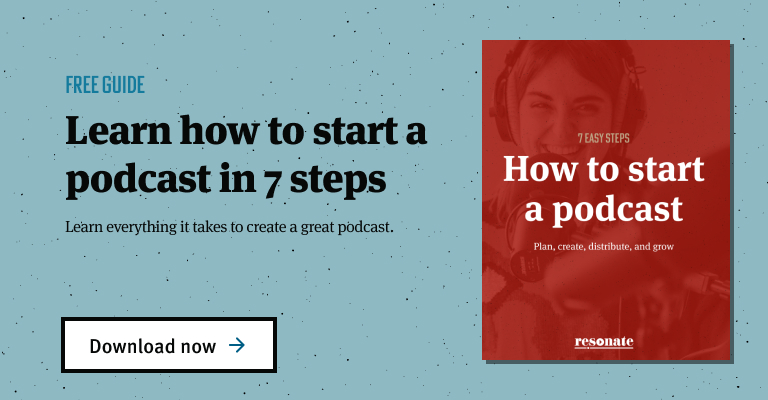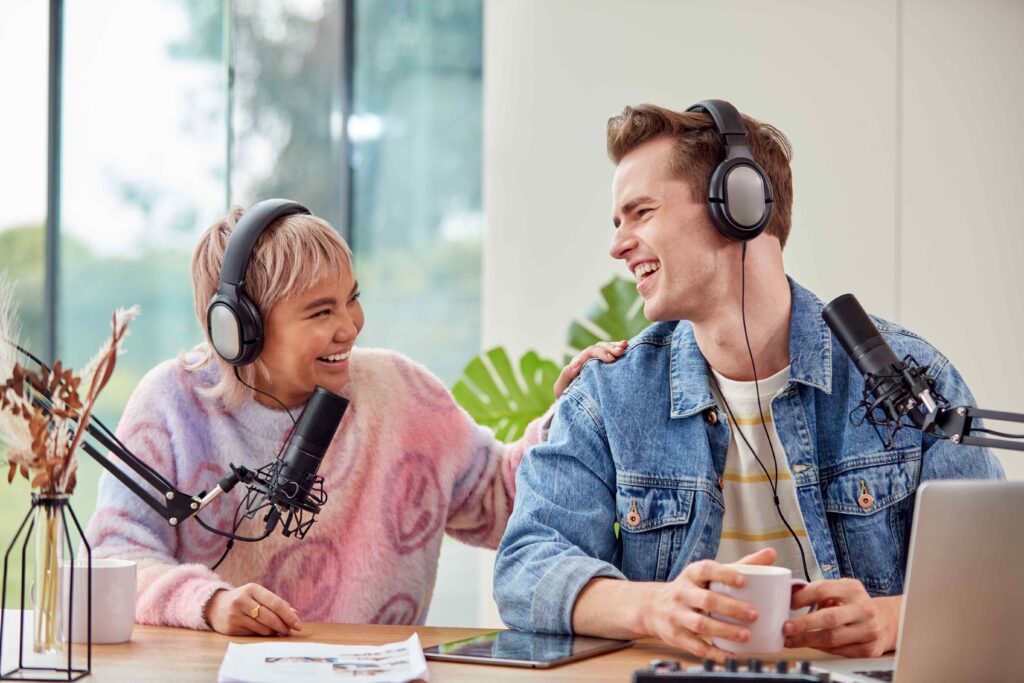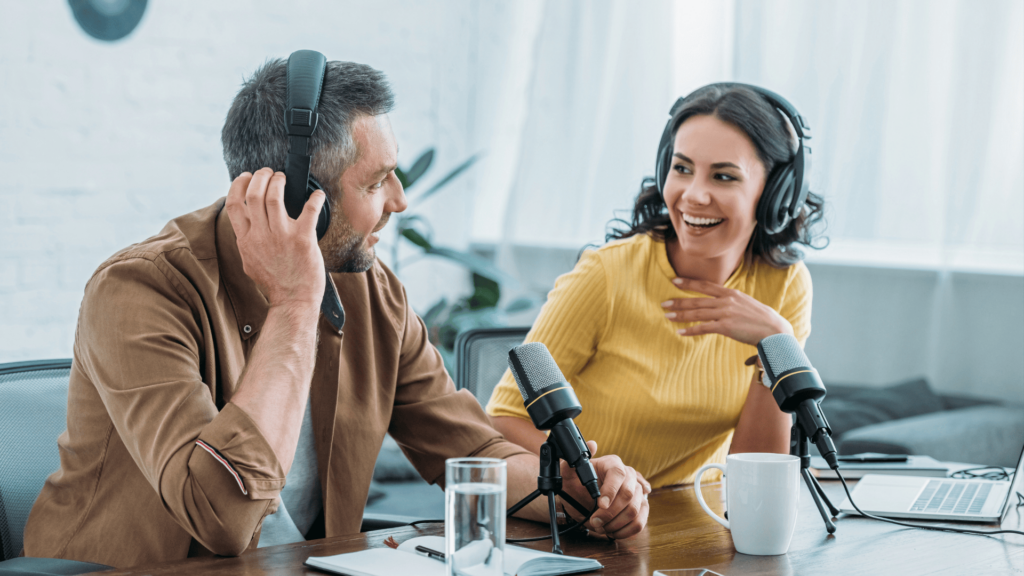As podcasting becomes more popular, it’s crucial to understand the ins and outs of intellectual property and copyright issues in 2024. We’re diving into the nitty-gritty of copyright protection, fair use, and safeguarding your creative assets. So, let’s get started and make sure you can confidently create content while protecting what’s yours.
Copyrights, Trademarks, and Patents: What’s the Deal?
First things first, let’s break down copyrights, trademarks, and patents. These three aspects play a significant role in protecting your podcast’s content, brand identity, and any innovative ideas you bring to the table.
Copyrights: Protecting Your Podcast Content
Copyrights are all about protecting your original works, like your podcast episodes. As soon as you create an episode and record it, you’ve got automatic copyright protection under U.S. law. But registering your work with the United States Copyright Office offers extra benefits, like public notice of ownership claims and eligibility for statutory damages if someone infringes on your rights.
Trademarks: Safeguarding Your Brand Identity
Trademarks are like bodyguards for your brand names and logos. By registering your trademark with the United States Patent & Trademark Office (USPTO), you get exclusive rights to use that mark within specific categories related to your podcast business. It’s all about securing your unique identity.
Patents: Innovations Within the Industry
If you’re a podcast trailblazer with new technologies or processes, like groundbreaking recording equipment or software, patents are your best friends. They protect your inventions from being copied by competitors. The USPTO has resources on how to effectively file patent applications if you’re ready to go down that road.
Understanding copyrights, trademarks, and patents is key to preserving your intellectual property. By securing these rights, you’ll ensure your podcast stays unique and keeps its valuable content.
Why Register Copyright Protection for Your Podcast?
- Public Record: Registering establishes a record of copyright ownership, making it easier to prove in case of disputes.
- Lawsuit Power: If someone infringes on your rights, you can file an infringement lawsuit in federal court, giving you access to greater remedies like attorney fees and statutory damages.
- Originality Evidence: It serves as evidence that your podcast is original and not copied from someone else.

Steps to Register a Trademark for Your Podcast Name or Logo
- Check Eligibility: Make sure your chosen name or logo doesn’t step on any existing trademarks. You can do a search using the USPTO’s trademark database called the Trademark Electronic Search System (TESS).
- Pick The Right Classes: Choose the International Classes that fit your podcast’s goods or services. The USPTO’s Acceptable Identification of Goods & Services Manual (IDM) can help you out.
- File That Application: Head to the USPTO’s Trademark Electronic Application System (TEAS), provide the necessary info, pay the fees, and submit your application.
By following these steps, you’ll protect your podcast’s intellectual property and ensure that your hard work doesn’t get snatched without permission. Plus, registering your copyright and trademark can add value to your brand and make it more attractive to sponsors and investors.
How to Navigate Fair Use in Podcasting
Now, let’s talk about fair use. When you want to use copyrighted material in your podcast, like music clips or book excerpts, it’s crucial to obtain permission unless fair use comes into play. Fair use allows limited usage without authorization, but it’s assessed on a case-by-case basis, considering some factors established by courts.
When Does Fair Use Apply?
- Purpose and Character: If your podcast transforms the original work, adds new meaning, or uses it for educational purposes, you’ve got a stronger case for claiming fair use. For example, if you’re discussing and critiquing a movie scene on your film review podcast.
- Nature Of The Work: Using factual information rather than creative content increases the likelihood of falling under fair use. So, quoting statistics from a research paper during an episode about mental health awareness would likely be fair use.
- Amount Used: The less you borrow relative to the whole work, the more likely it’s considered fair use. Quoting a single phrase instead of a whole section is usually fair use.
- Effect On Market Value: If your podcast doesn’t harm sales or demand for the original work, it’s more likely to qualify as fair use. You can reference small portions of songs while discussing their lyrics or themes without playing them in full.
Understanding how fair use factors apply to podcasts is crucial for compliance with copyright laws. Check out resources like Stanford University’s guide on fair use or consult an intellectual property attorney to be safe.
Protect Your Podcast’s Intellectual Property
Protecting your podcast’s intellectual property is a must. By understanding copyrights, trademarks, patents, and fair use, you’ll keep your content valid and avoid any legal headaches. And if you want to expand internationally, don’t forget to investigate registering trademarks through the WIPO Madrid System and meeting local requirements of specific countries or locations.

Protect Your Intellectual Property Rights Internationally
The World Intellectual Property Organization (WIPO) Madrid System is a handy tool. It allows you to register trademarks in over 120 countries with just one application and fee. No more filing individual applications for each country, phew! Start by submitting an international trademark application through your national or regional intellectual property office, like the USPTO. Once approved by WIPO, you can choose additional member countries where you want protection.
Each country has its own local requirements, so it’s important to understand them. In Australia, podcasts are protected under copyright law without formal registration, but it’s still recommended to register a trademark for your podcast’s name or logo. Check out IP Australia’s website for more info. If you’re in the European Union, consider applying for an EU Trademark through the European Union Intellectual Property Office (EUIPO). And for protection in Canada, consult with the Canadian Intellectual Property Office (CIPO) for guidance on copyright and trademark registration.
Establish IP Ownership and Usage Agreements with Co-Hosts and Guests
When collaborating with co-hosts and guests, it’s important to establish IP ownership and usage agreements. Clear agreements outlining content ownership, revenue sharing, responsibilities, and termination clauses with your co-host(s) can prevent disputes down the road. Don’t forget to consult an IP attorney for guidance on creating a solid agreement.
When it comes to guests, set expectations upfront. Have them sign a release form granting permission to use their appearance in promotional materials or future episodes. Discuss any content distribution restrictions or royalty payments if monetization comes into play. It’s all about maintaining clarity and avoiding potential conflicts.
How do you avoid copyright issues on a podcast?
To avoid copyright issues, use original content or obtain permission for third-party materials. Consider using royalty-free music platforms like Bensound or Incompetech. Familiarize yourself with fair use guidelines and ensure any advertising or sponsorship deals comply with trademark laws.
Conclusion
In 2024, hot topics in IP include international copyright laws for global distribution and adapting content to country regulations, AI-generated content ownership challenges, and showcasing sponsorship without trademark infringement.
By understanding copyright laws, utilizing registration systems like WIPO, establishing clear agreements, and respecting others’ IP rights, you’ll protect your podcast’s intellectual property and keep the legal headaches at bay. And if you need help with post-production services while ensuring IP compliance, reach out to Resonate Recordings. We’re experts in sound editing, mixing, and mastering, and can guide you through the process.
Now go ahead, create amazing content, and protect what’s yours, podcasters!











